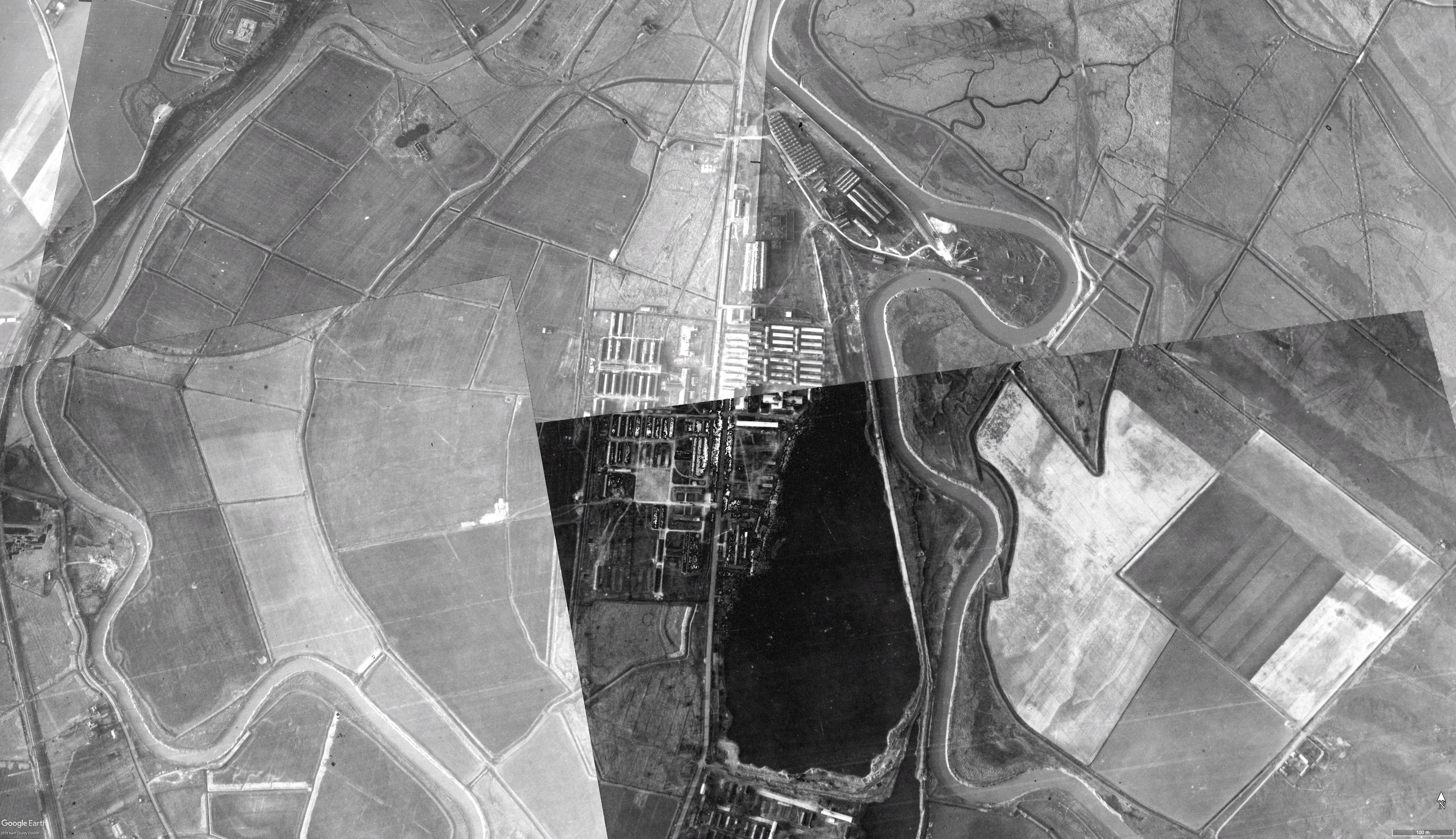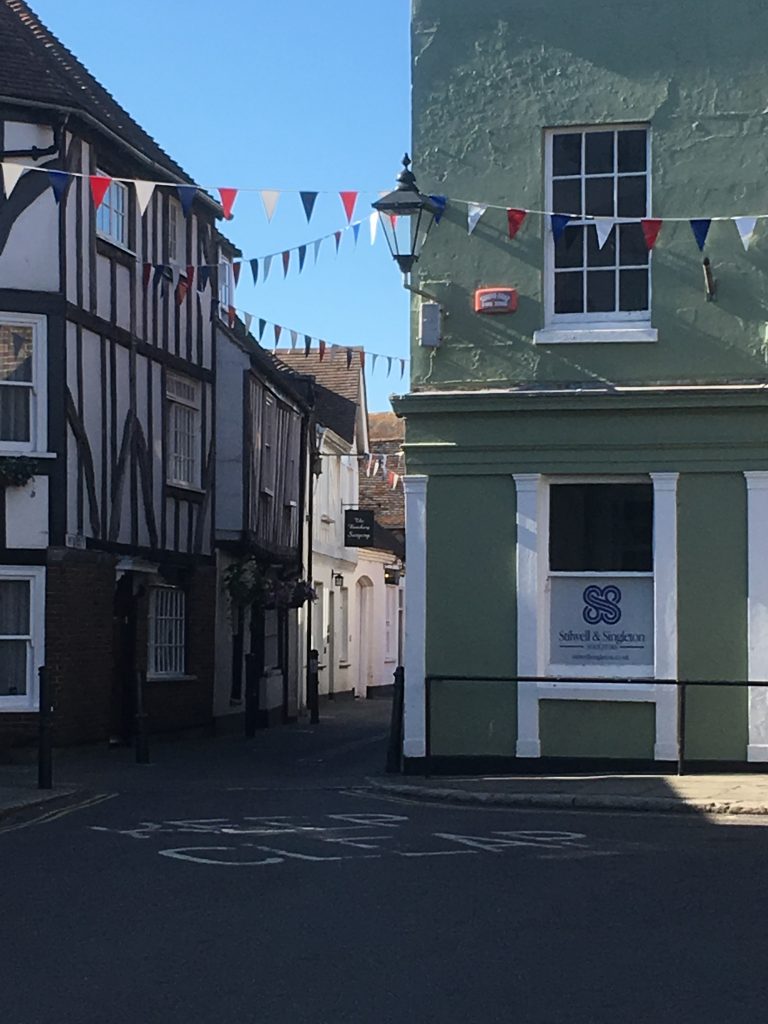As many kitchens are no doubt being stacked with the wherewithal for doughnuts and latkes, and as extra beds are being found for family and friends, it seems as good a time as any to reflect on what the move to Britain must have meant for our fathers and grandfathers in terms of the friendships and connections they encountered in and around the small, historic town of Sandwich.
One local family who welcomed our families to Britain has been in touch recently with some reminiscences from an uncle, who is approaching 100 years of age, and thinking back to his family’s part in the remarkable histories we have been commemorating over the last year.
"I spoke to my uncle who is 97 now; he remembers my father Jim and his sister June - who lived on the High St, Sandwich, Kent - regularly walking up the Ramsgate road with food parcels, and coming back with small toys carved from wood sometimes. I also spoke to my Auntie June who said 'Talk to Uncle Edwin, as he has some of the items from the camp', but he can't remember that - apart from finding a hand grenade on the nearby beach and bringing it home to dry out on the fireplace until the police arrived! You may also be interested to know we lived on Ramsgate Road, Sandwich, on the Stonar estate. My father was a manager who ran the Stonar lake dredging for sand and stones for concrete. Our bungalow (the old Officer's Mess from World War I) was on the road in front of the Kitchener camp; my Father's garage was one of the camp's long buildings."

"When his company was dredging the lake you would be amazed what was found. Once, over 200 skulls were found and dredging stopped for two months for closer examination (I think they were from a Roman fort). And many other times, hoards of guns and bullets in big cases from the World War I era. His company came to the conclusion if they had to stop dredging every time something interesting came up they would be all out of business, so you could see lorries with skulls on the wing mirrors, and the dredging continued."
One of the sets of letters that are gradually being uploaded with the kind permission of the Gamby family and the Leo Baeck Institute – where the original letters are archived – also speaks to the welcome our families received from the local community.
This warm reception must have been especially welcome by the time the following letter was written home to Werner’s wife in January 1940: she had successfully emigrated to New York by this time. She and their son Peter were anxiously awaiting Werner’s visa number to come up, so he could join them, which he eventually managed to do in summer 1940.
Kitchener Camp, Werner Gembicki, Letter, Extract, 16 January 1940, page 4
With thanks for permission to reproduce the image above on this website to the Leo Baeck Institute
It is impossible indeed to describe how nice these people are. They speak a very good and distinct English and I have a good profit of it. In the course of our conversation Maud asked me whether I had a mind to come with them to Canterbury next day to visit friends there. Of course, I had and so I got with two other boys who had known Maud and Edgar at first, to Ash, and from there we went to Canterbury by bus. Edgar paid for the fares for us (about 6 shillings together) and then … then we came into a house I have never seen before in England or even in (?). A sweet little cottage with one living room, both small walls of glass. The room was very new (?)-fashioned and wonderfully equipped. I called it “Symphony in Green” … Our hosts (?) a young couple, he designs furniture, that’s why the room was so (?) quite contrary to the usual furniture here which is awful. The man had just bought a new table-tennis table and I had, of course, no adversaries. Then we had tea, consisting of bread, jam, honey, cress, cakes, (?), mince pies! Like in paradise! We stayed there til 8pm (from around 3pm) and had a wonderful afternoon. Further, we were asked to drop in whenever we were in Canterbury.

With thanks for permission to reproduce the image above on this website to the Leo Baeck Institute
You can scarcely imagine what it means to me, under normal conditions, and therefore, this afternoon was grand. But, the afternoons with Maud and Edgar are very nice, and I am probably going to see them this week. I believe Maud likes me and wherever I am, she always makes me show your pictures. We call her always: little mother with the big heart, because she is only 1.60m high. I am really happy that I found such good friends, because it does me a lot of good to speak English. We feel there like at home; we help cleaning the plates and dishes, Herbert makes tea. They are so hearty (?) and not a bit stiff. I promised her to show you new pictures of (?); haven’t you any from NY [New York]? She always asks: any news from you wife or mother? Really, you can’t imagine such kindness. They invited Ernst [Levy’s] wife, too, as I told you, although they are far from being rich. Real middle-class.”
To new connections and new friendships –
– Chag Sameach!


